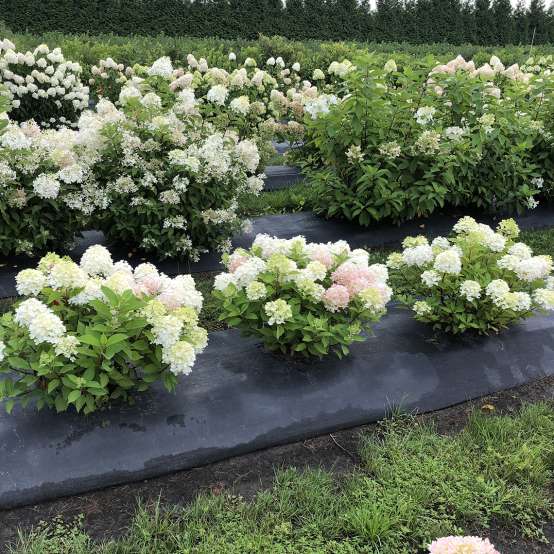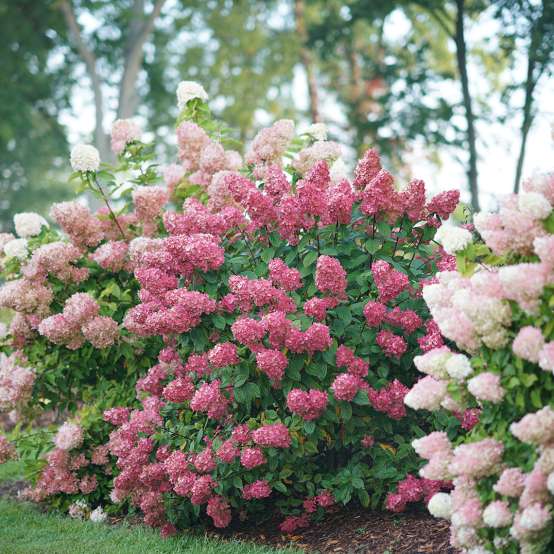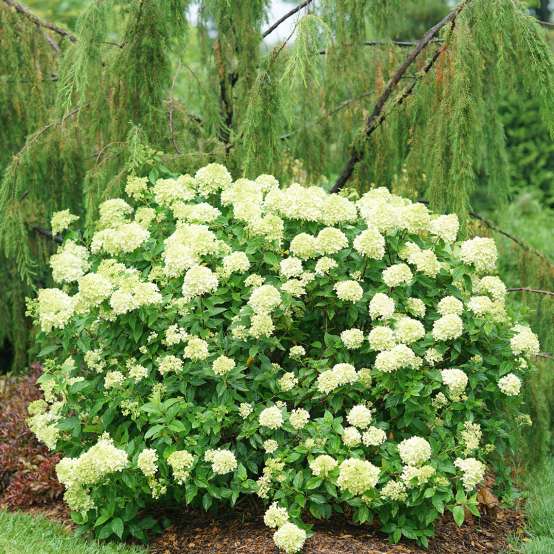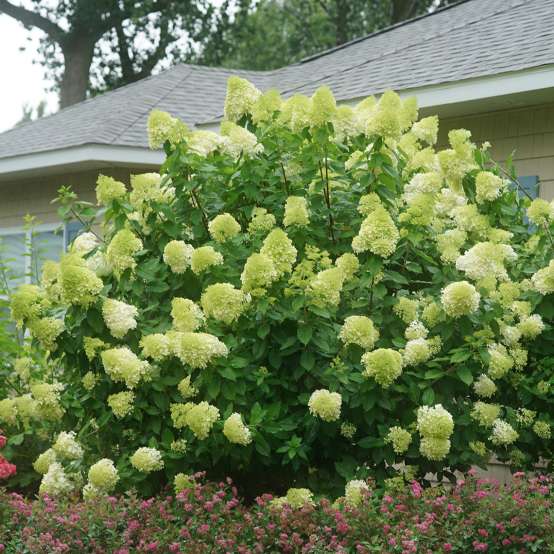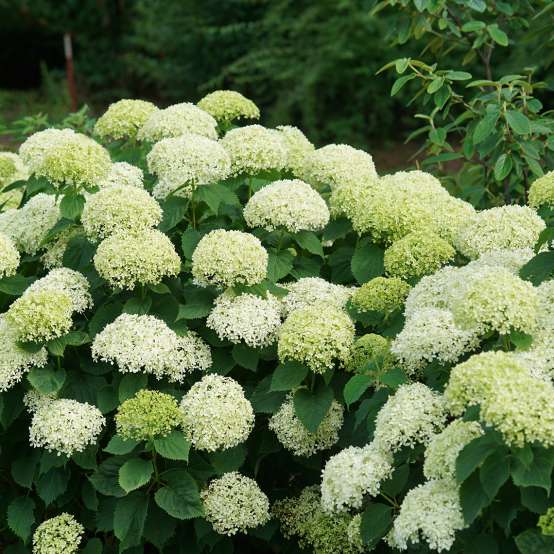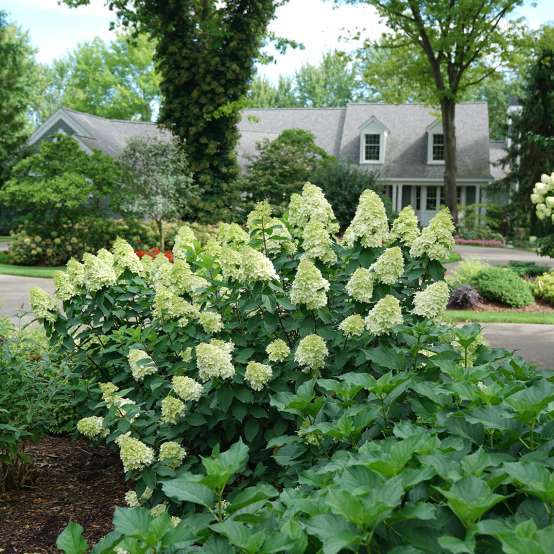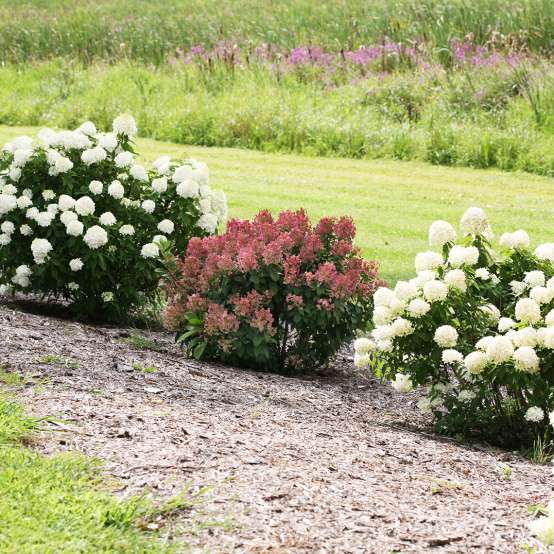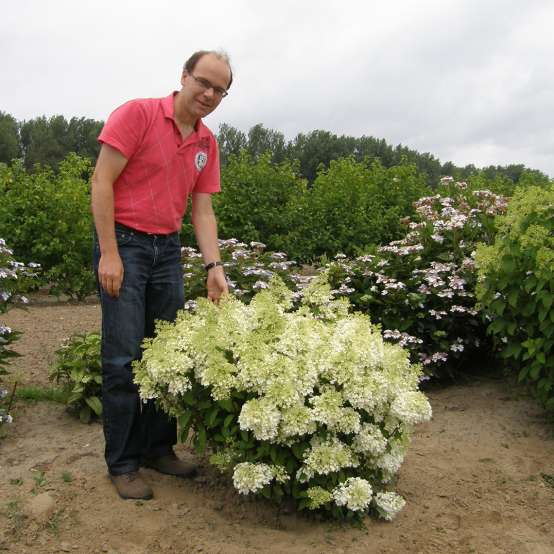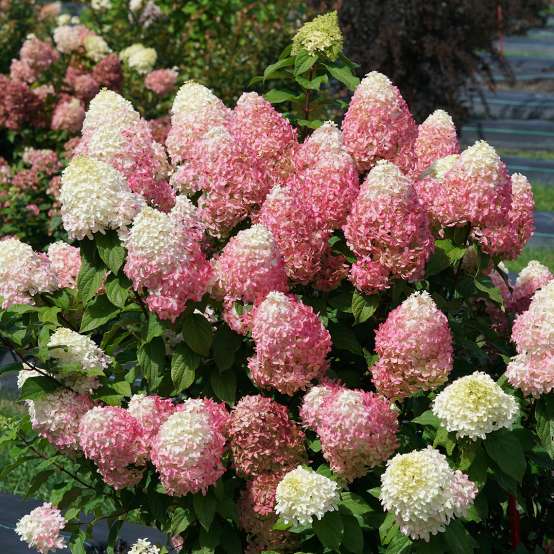Clicking the following controls will change the main image displayed above.
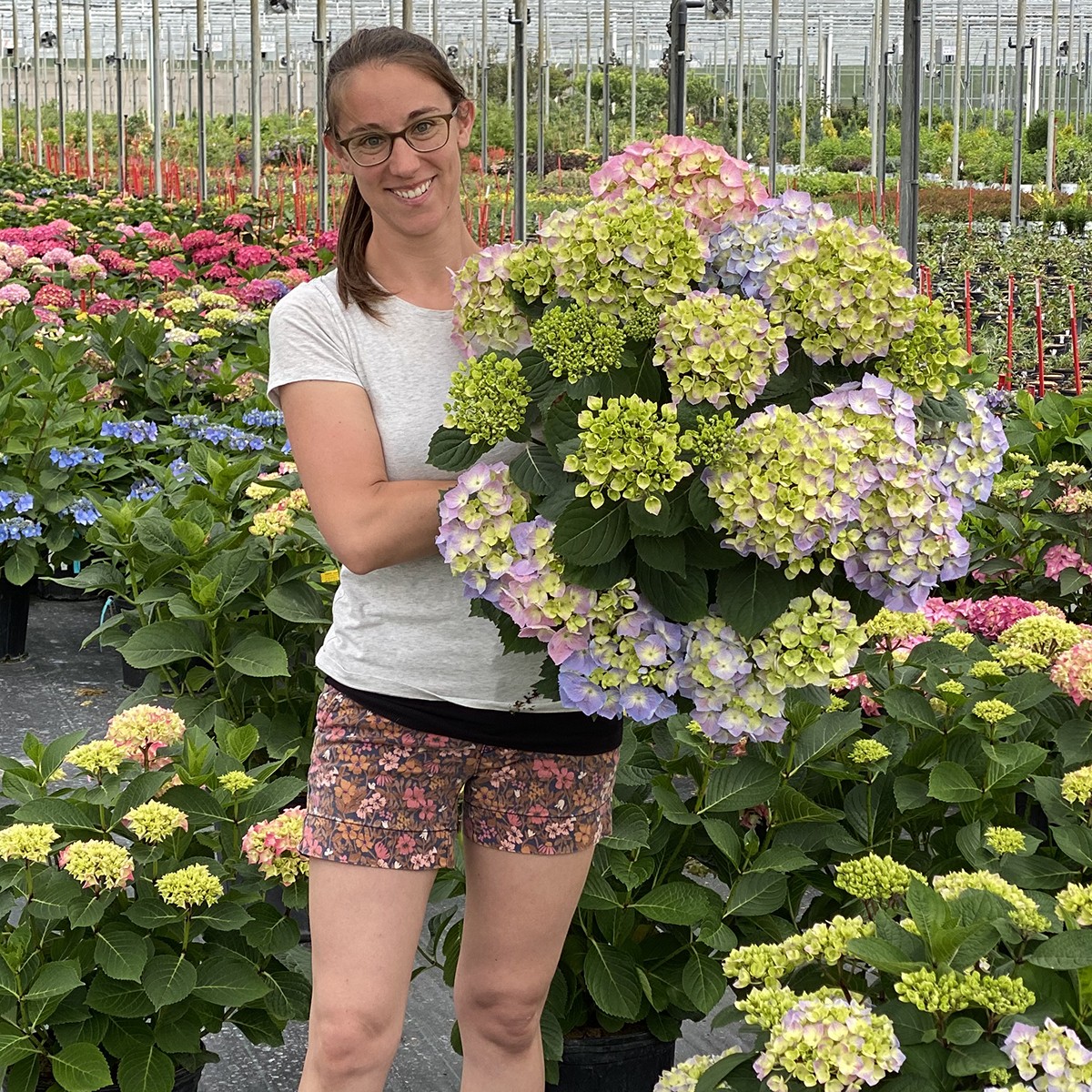
Meet the Breeder
Megan Mathey
Grand Haven, Michigan
LITTLE LIME PUNCH®

Panicle Hydrangea
Hydrangea paniculata
'SMNHPH'
US Utility 11,944,063; PP#33,207; CBRAF
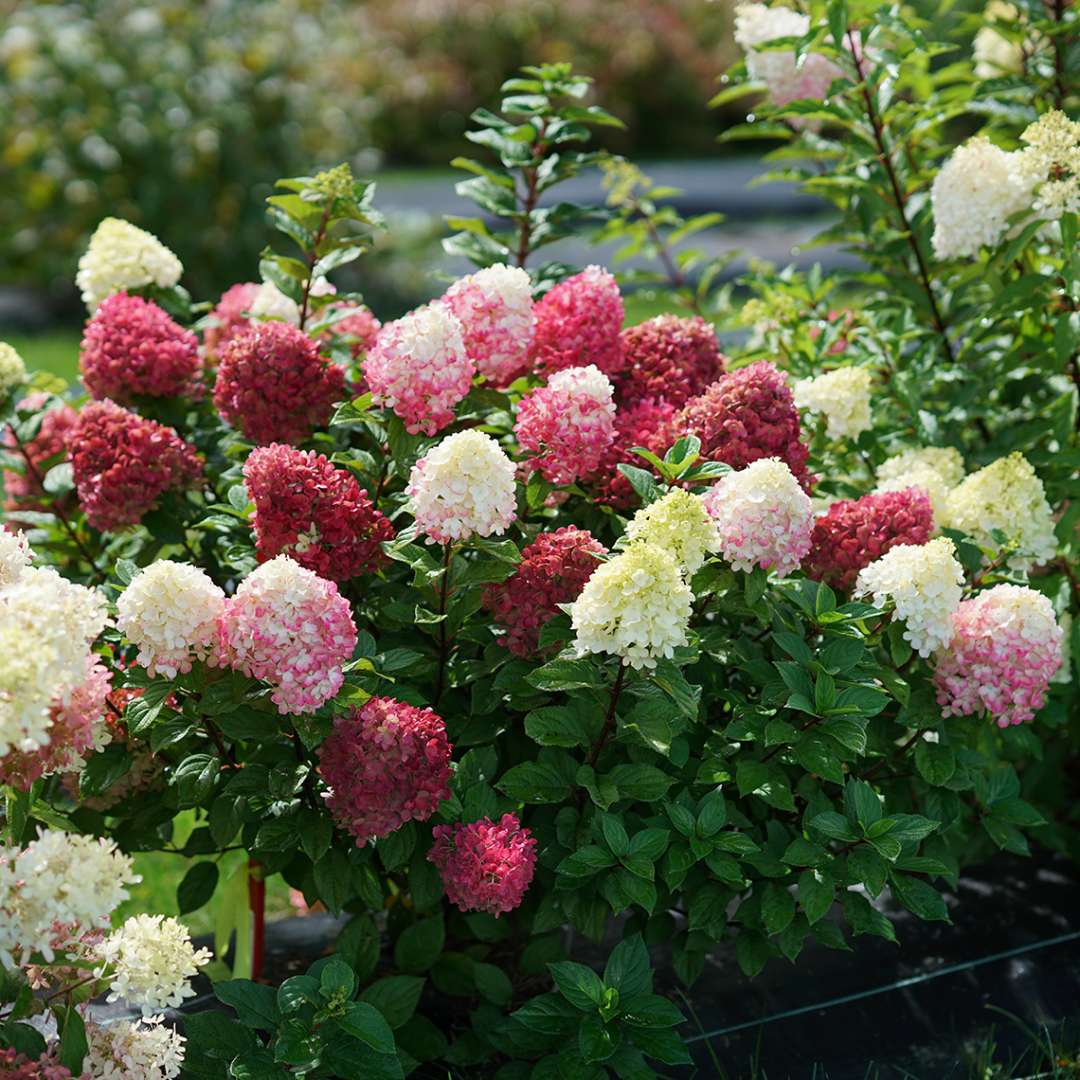
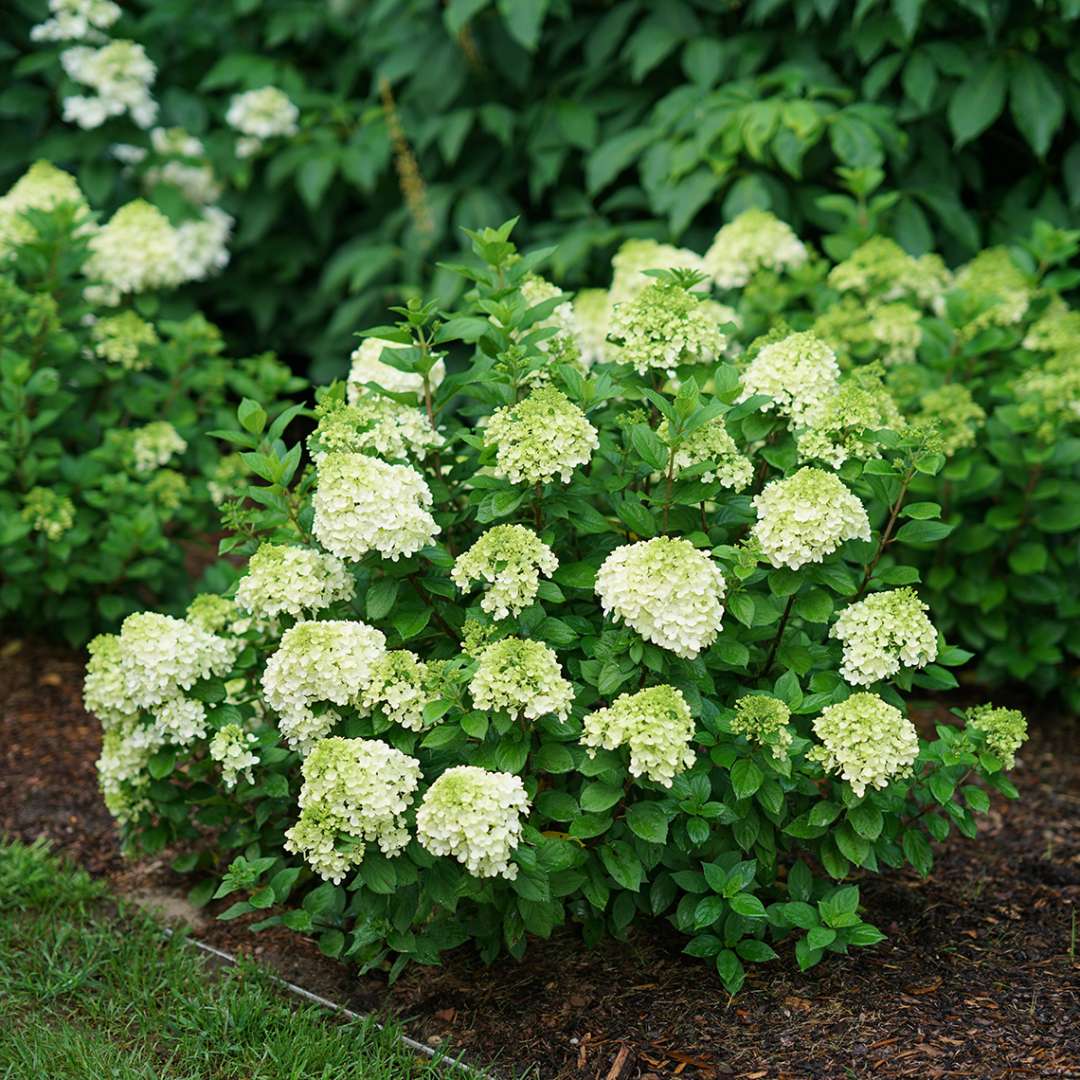
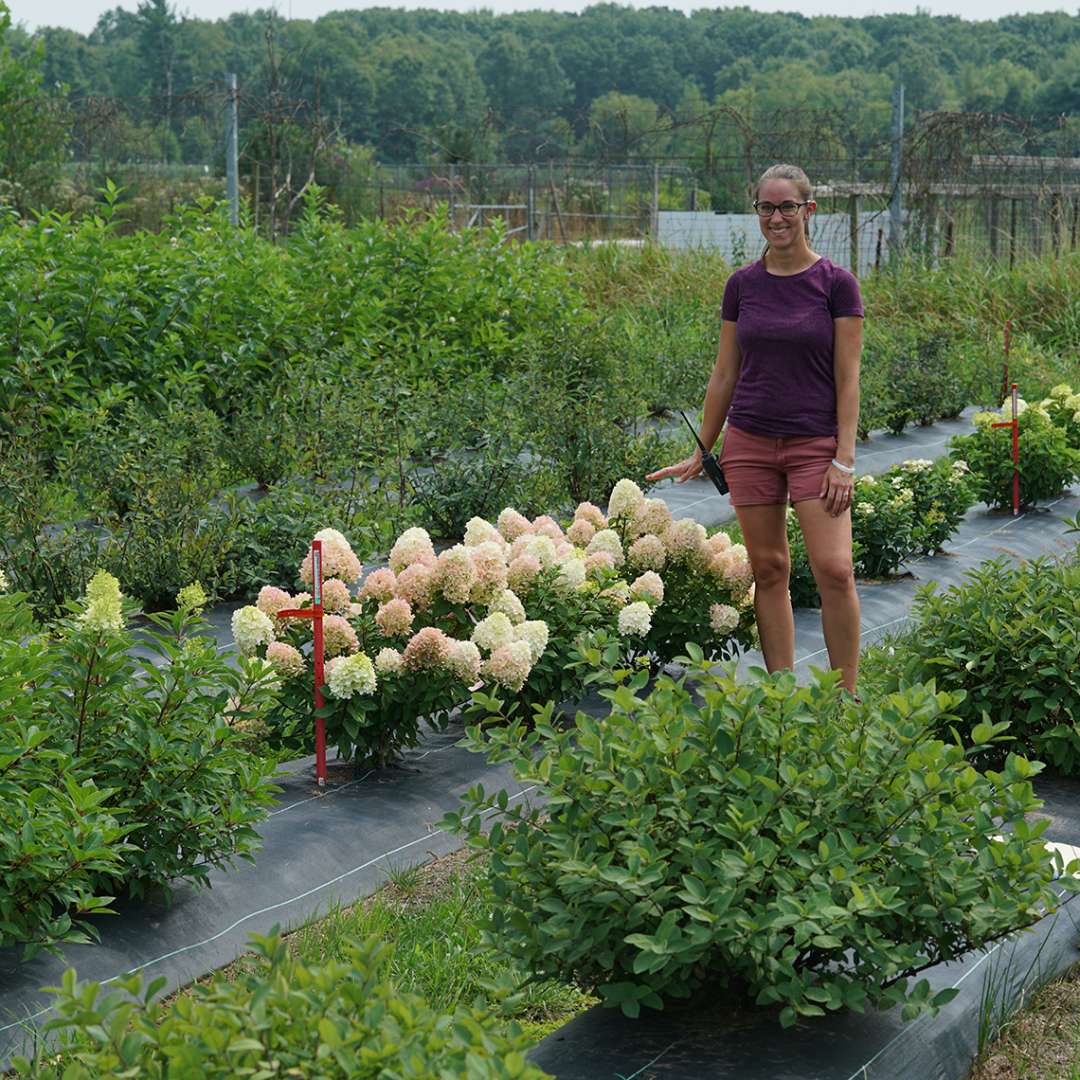
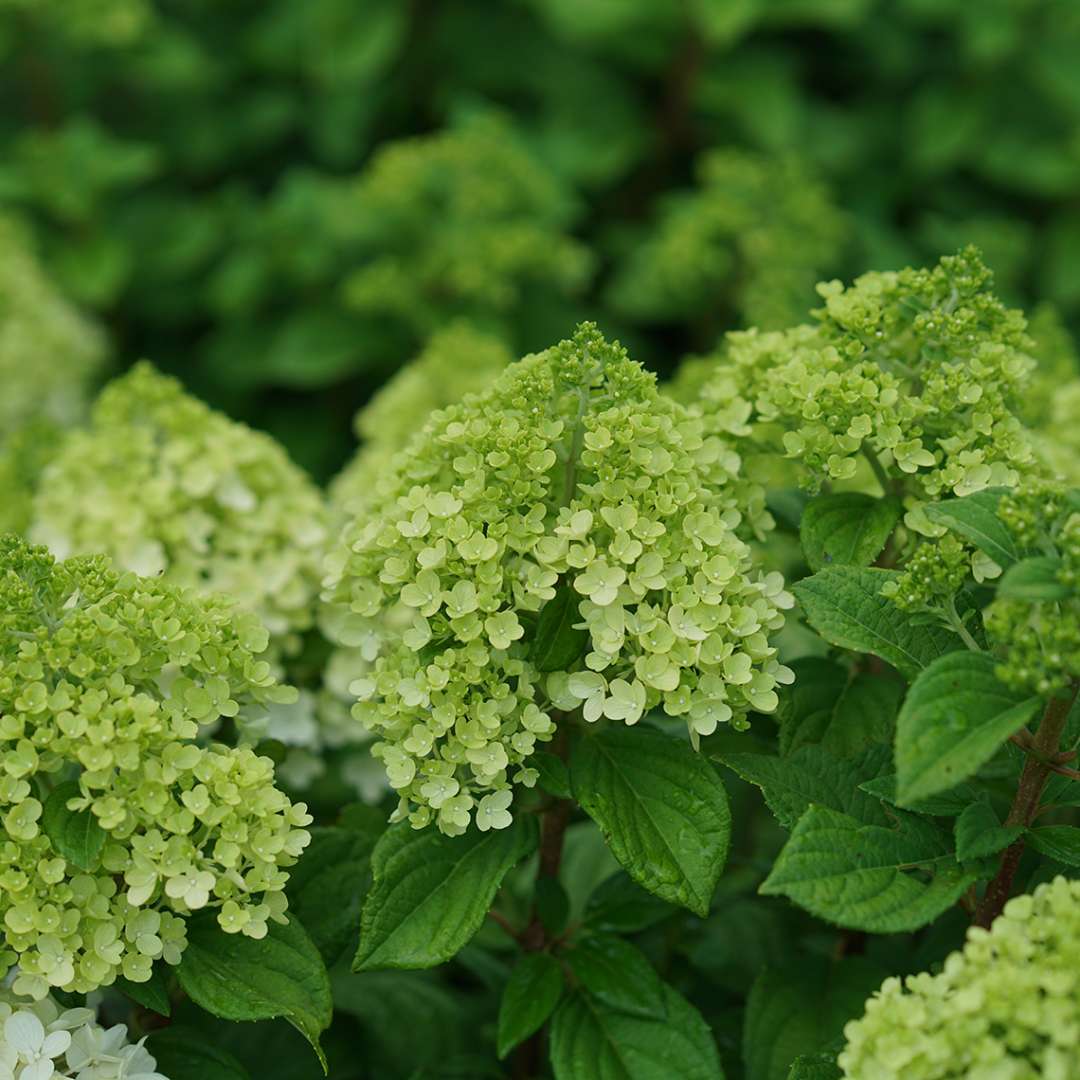
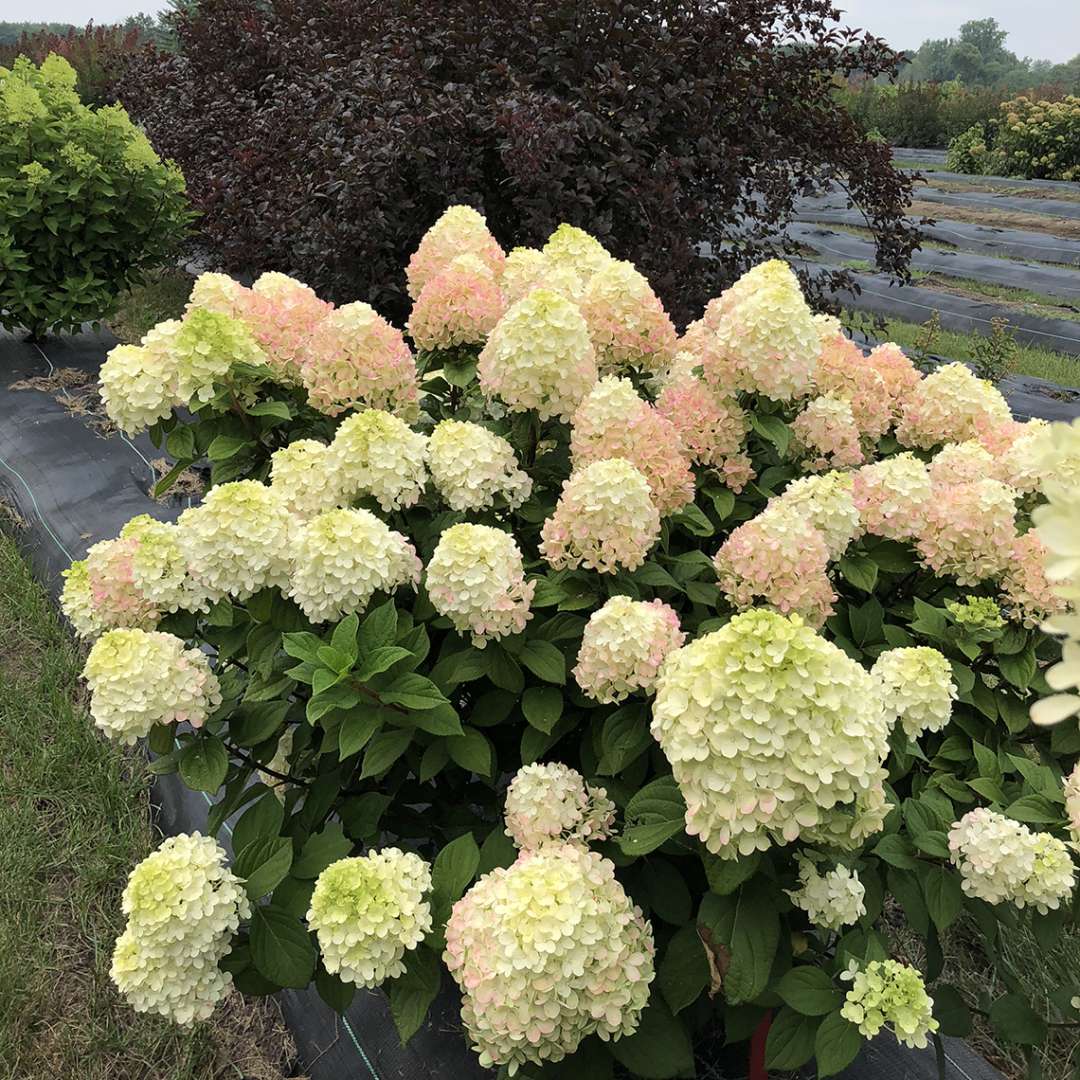
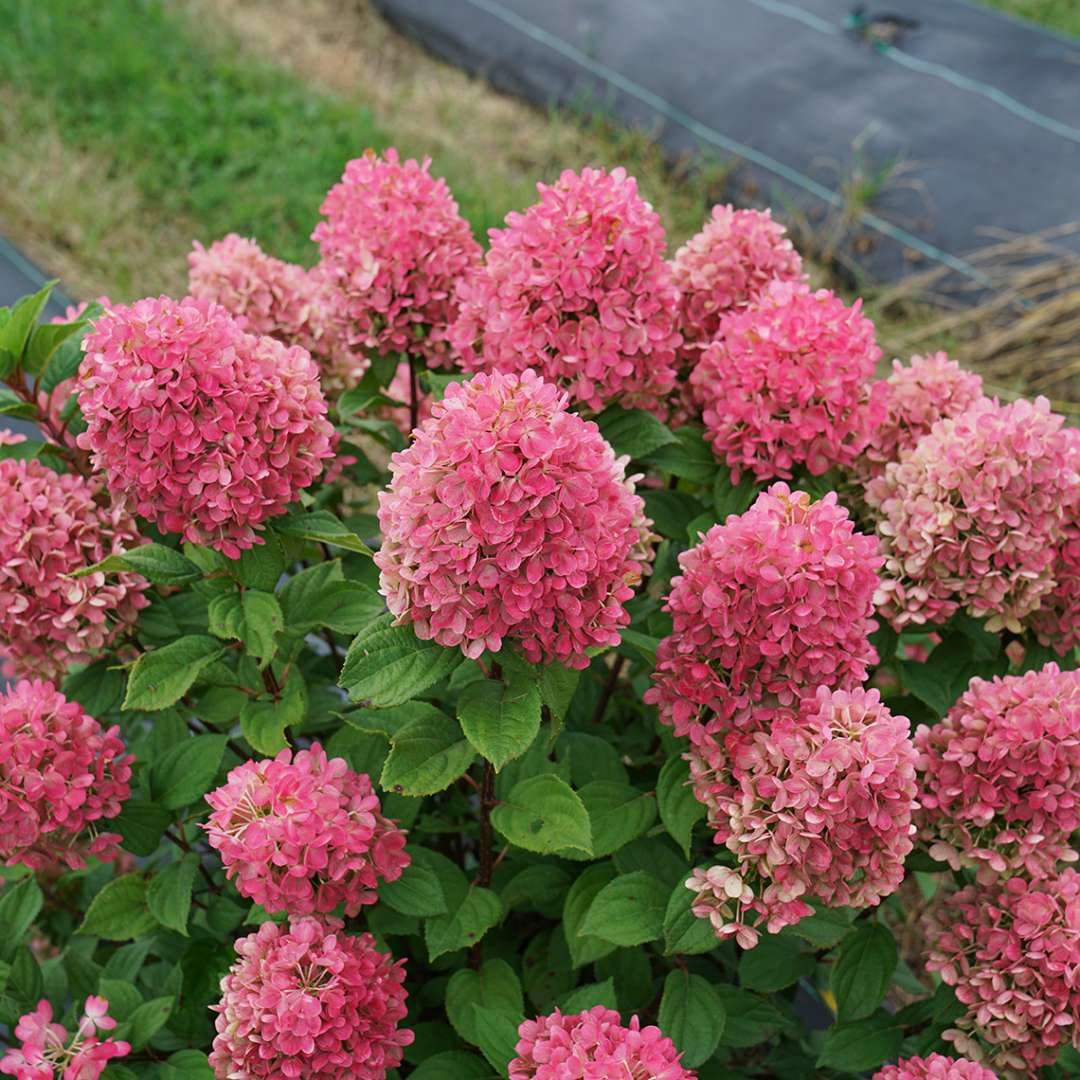

- Space Saving
- Vibrant Blooms
- Hardy
- Description
2025 Hydrangea of the Year! It's a special day when you discover a plant that's as unique and beautiful as this one. Similar to Little Lime® hydrangea with its useful, compact stature and emerging lime-green blooms, but it differs as the flowers age to pink. New blooms emerge to give you a festive mix of pink, green, white, and Hawaiian Punch-red blooms all on the same plant. It's hard to describe, but the plants just make you feel happy.
- USDA Zone
- 3-9 (-40°F/-40°C)
- Exposure
- Full sun, Part sun
- Height
- 3-5'
- Width
- 3-5'
- Finish Time
- 1 season
- Type
- Deciduous
- Bloom Time
- summer
- Flower Color
- Green, Pink
- Foliage Color
- Green
- Liner Sizes
- 2 1/4"
General Care
Soil
Adaptable to most any soil except very wet or excessively alkaline soils.Pruning
In late winter or early spring, cut back by about one-third its total height, just above a set of large buds. This ensures that the growth for the season will come vigorous buds lower on the plant and also serves to remove any remaining dried blooms. Alternatively, cut back in autumn once the plant has gone completely dormant. May be cut back harder if desired, though this tends to produce stems that are unable to achieve maximum stem strength the following season.Uses
Specimen; mixed borders; mass plantings. Makes a good hedge or screen. Excellent for cut flowers, both fresh and dried.Growing Tips
Panicle hydrangeas are the most sun tolerant hydrangeas and are also resistant to wilting. In cooler climates, full sun is recommended for best stem strength and flower set. Flower color is unaffected by soil chemistry. If flowers turn brown and dry instead of aging to pink or red, this indicates that the plant needs more water or that nighttime temperatures are too high for the transition to occur.Features: Alkaline soil, Clay soil, Cut flower, Dwarf, Compact
Filters: Botanical genus: Hydrangea, Common name: Panicle Hydrangea, Retail program: Proven Winners® ColorChoice®, USDA Zone 3, USDA Zone 4, USDA Zone 5, USDA Zone 6, USDA Zone 7, USDA Zone 8, USDA Zone 9, Exposure: Full sun, Exposure: Part sun, Bloom time: Summer, Green flowers, Pink flowers, Green foliage
Features: Alkaline soil, Clay soil, Cut flower, Dwarf, Compact
Filters: Botanical genus: Hydrangea, Common name: Panicle Hydrangea, Retail program: Proven Winners® ColorChoice®, USDA Zone 3, USDA Zone 4, USDA Zone 5, USDA Zone 6, USDA Zone 7, USDA Zone 8, USDA Zone 9, Exposure: Full sun, Exposure: Part sun, Bloom time: Summer, Green flowers, Pink flowers, Green foliage

